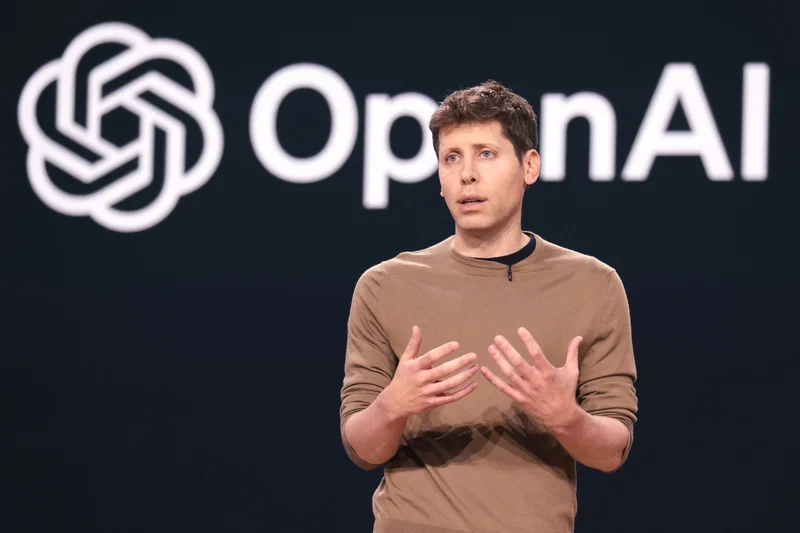You have to hand it to him. The man knows how to put on a show.
I can just picture it: the manicured lawn of the Rose Garden Club, the clinking of ice in glasses, the sycophantic applause from people who own more boats than I own socks. And there, at the center of it all, is Donald Trump, delivering what the headlines are calling a "warning" to Xi Jinping. A warning. Give me a break.
This isn't a warning. It's a trailer for the next season of the geopolitical drama he’s trying to produce. The line, “‘If You Cancel…,’” dangled in the air like a threat from a B-movie villain, is pure, uncut political theater. It’s designed for cable news chyrons and angry social media posts, not for the ears of the General Secretary of the Chinese Communist Party. Does anyone seriously believe Xi is sitting in Beijing, sweating over whether Trump will be disappointed if he’s a no-show?
The real audience wasn't in Zhongnanhai. It was right there in the Rose Garden, and watching at home in Michigan and Pennsylvania. This is all part of the pitch, the strongman persona that sells so well. It’s not diplomacy; it’s branding.
The Best Revisionist History Money Can Buy
Let's get to the heart of the matter, the line that’s really meant to stick: the claim that the U.S. "built China's military."
On the surface, it’s a masterstroke of political messaging. It’s simple, it’s infuriating, and it places all the blame squarely on the "stupid" leaders of the past. Trump says past U.S. leadership allowed China to benefit from one-sided trade deals, effectively funding their military buildup. He talks about the "hundreds of billions" in tariffs he collected as if he personally went door-to-door with a collection tin. It’s a narrative that paints him as the lone hero who finally stood up to the dragon everyone else was feeding.
But let's be real. This is a five-alarm dumpster fire of oversimplification. No, it's worse than that—it's a deliberate rewriting of history for political gain. To say America "built" China's military is like saying the guy who sold you a gym membership is responsible for you winning the Olympics. Offcourse our decades of trade, investment, and technology transfer played a role in China's economic explosion. An explosion that, yes, allowed them to modernize their military. But to frame it as some kind of intentional, funded project is just... a lie. A useful, powerful lie, but a lie nonetheless.

It completely ignores China’s own industrial policy, their rampant intellectual property theft, and their single-minded national ambition. It pretends they were just a passive piggy bank we kept filling until they could afford a new navy. Why does this narrative work so well, then? Because it absolves us, the American consumer, of any complicity. It wasn't our insatiable demand for cheap goods that fueled their factories; it was the fault of some faceless bureaucrats in D.C.
The whole thing is a carefully constructed story where Trump is the protagonist, and everyone before him was either a fool or a traitor. And honestly, in today's political climate, what sells better than that? Who has time for nuance when you can have a simple, satisfying story of betrayal and redemption?
The Great American Speed-Up
After firing up the crowd with his tough-on-China rhetoric, Trump pivoted to the domestic stuff. And this is where the subtext gets really interesting. He started bragging about his administration expediting approvals for power plants, projects that had been "stalled for years." He’s positioning the U.S. to lead in AI and energy, and he's doing it by cutting through the red tape that supposedly holds America back.
He even gave a shout-out to officials like Lee Zeldon for accelerating environmental and industrial approvals. This is the other side of the coin. On one hand, you have the external enemy (China). On the other, you have the internal enemy (bureaucracy, regulations, the "deep state"). The message is clear: I’m the only one who can fight them both.
This ain't a new message, but it’s one that resonates deeply with a lot of people. I mean, who hasn't felt the soul-crushing despair of dealing with some pointless government form? I once spent three weeks trying to get a permit for a new fence, a process that involved more paperwork than my mortgage. So when a politician comes along and says, "I'm going to burn all that down," it's incredibly seductive.
But what gets lost in the applause? What are the "details" in those environmental and industrial approvals we're so happily shredding? Are we fast-tracking our way to a technological boom or just a different kind of disaster? The speech offers no answers, just the intoxicating promise of speed and power. We're going to beat China, and we're going to do it by unleashing American industry from its shackles. It sounds great, but it also sounds a lot like the justification for every industrial-era catastrophe we've ever had.
Then again, maybe I'm just a cynic. Maybe this is exactly what the country needs, a leader who is willing to break things to get things done. But I can't shake the feeling that we're being sold a story that’s too good to be true, a promise that ignores the inevitable bill that always comes due.
It's the Same Script, Just a Different Year
At the end of the day, none of this is really about a summit with Xi Jinping. It's not even about a coherent foreign or domestic policy. It's about performance. It's about crafting a narrative where one man, and one man alone, can fix everything. He's the tough negotiator who will stare down our enemies and the master builder who will unleash our economy. The claims don't have to be true; they just have to feel true to the right people. And as he stood there in the Rose Garden, basking in the applause, it was clear that for his audience, it felt truer than anything. We've seen this movie before, and we're all just waiting to see if the ending changes this time.
